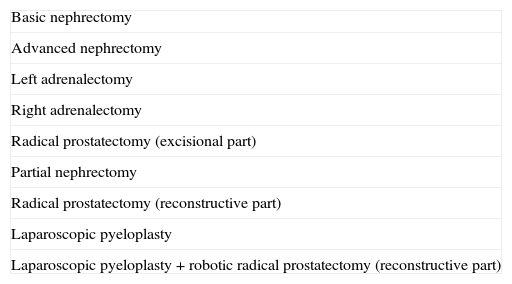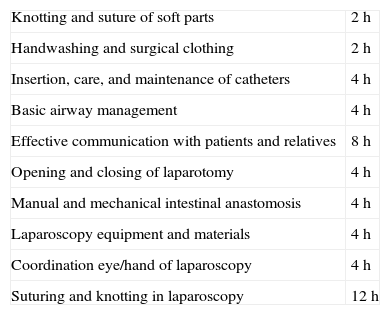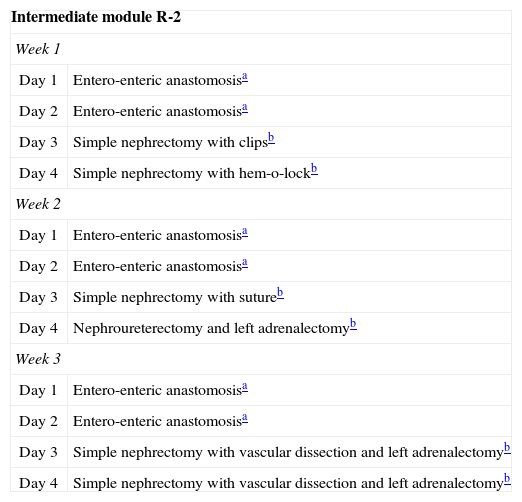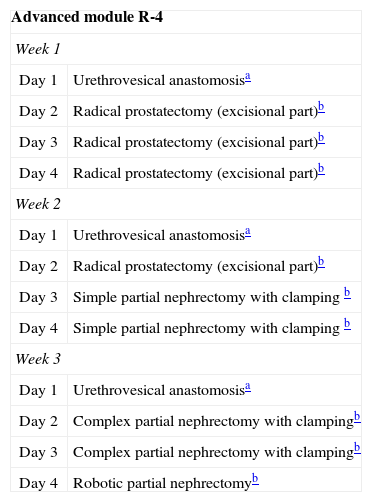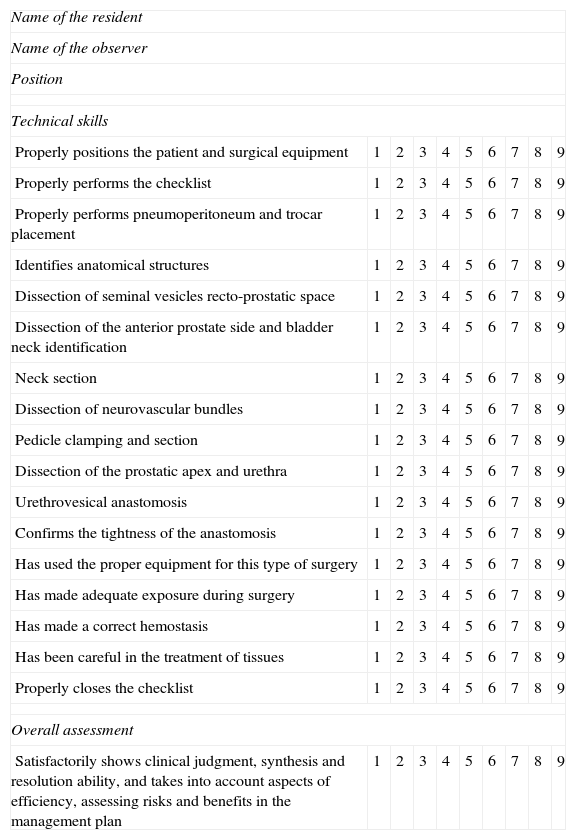The training and learning of residents in laparoscopic surgery has legal, financial and technological limitations. Simulation is an essential tool in the training of residents as a supplement to their training in laparoscopic surgery. The training should be structured in an appropriate environment, with previously established and clear objectives, taught by professionals with clinical and teaching experience in simulation. The training should be conducted with realistic models using animals and ex vivo tissue from animals. It is essential to incorporate mechanisms to assess the objectives during the residents’ training progress.
ObjectiveWe present the training model for laparoscopic surgery for urology residents at the University Hospital Valdecilla. The training is conducted at the Virtual Hospital Valdecilla, which is associated with the Center for Medical Simulation in Boston and is accredited by the American College of Surgeons.
Material and methodThe model is designed in 3 blocks, basic for R1, intermediate for R2–3 and advanced for R4–5, with 9 training modules. The training is conducted in 4-h sessions for 4 afternoons, for 3 weeks per year of residence. Residents therefore perform 240h of simulated laparoscopic training by the end of the course. For each module, we use structured objective assessments to measure each resident's training progress.
ResultsSince 2003, 9 urology residents have been trained, in addition to the 5 who are currently in training. The model has undergone changes according to the needs expressed in the student feedback. The acquisition of skills in a virtual reality model has enabled the safe transfer of those skills to actual practice.
ConclusionsA laparoscopic surgery training program designed in structured blocks and with progressive complexity provides appropriate training for transferring the skills acquired using this model to an actual scenario while maintaining patient safety.
El entrenamiento y aprendizaje de los residentes en la cirugía laparoscópica tiene limitaciones legales, económicas y tecnológicas. La simulación es una herramienta imprescindible en la formación de los mismos como complemento a su formación en la cirugía laparoscópica. Dicha formación debe estar estructurada en un ambiente adecuado, con objetivos claros determinados previamente, tutelada por profesionales con experiencia en clínica y docencia en simulación y con modelos realísticos, usando tanto animales como tejidos ex-vivo de los mismos. Es imprescindible incorporar mecanismos de evaluación objetivos en el progreso formativo del residente.
ObjetivoPresentamos el modelo de entrenamiento en cirugía laparoscópica para los resientes de urología en el Hospital Universitario Valdecilla, que se realiza en el Hospital Virtual Valdecilla, centro asociado al Center for Medical Simulation de Boston y acreditado por el Colegio Americano de Cirujanos.
Material y métodoEl modelo está diseñado en 3 bloques, básico para R1, intermedio para R2-3 y avanzado para R4-5, con 9 módulos a entrenar. El entrenamiento se realiza en programas de 4h en 4 tardes, a razón de 3 semanas por año de residencia, lo que conlleva que al final de la misma hayan realizado 240h de formación laparoscópica en simulación. Para cada módulo utilizamos como medida de progresión formativa del residente evaluaciones objetivas estructuradas.
ResultadosDesde 2003 se han formado 9 residentes de urología más los 5 que están actualmente en formación. El modelo se ha ido modificando y adecuando según las necesidades que el feedback con los alumnos nos trasmitía. La adquisición de las habilidades en un modelo de realidad virtual ha permitido la transferencia a la práctica real con seguridad.
ConclusionesEl diseño de un programa formativo en cirugía laparoscópica, en bloques estructurados y de progresiva complejidad, permite alcanzar una formación adecuada para transferir las habilidades adquiridas mediante este modelo a un escenario real con seguridad para el paciente.








